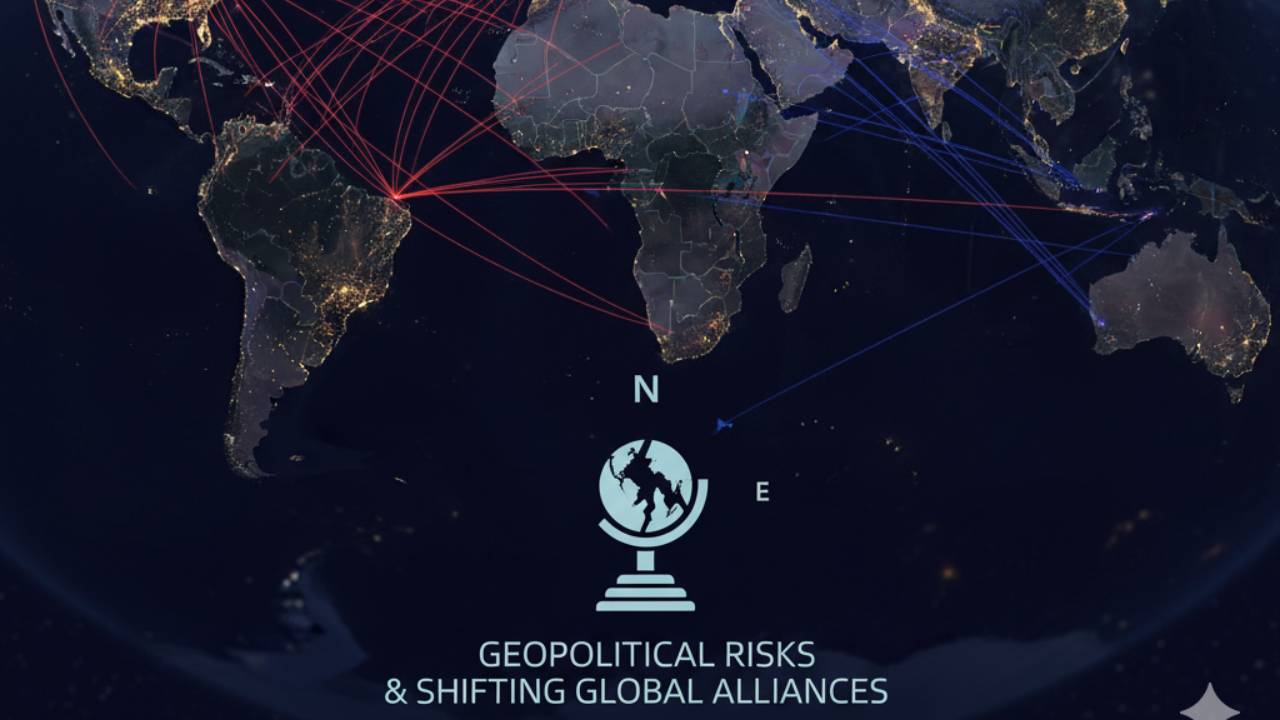
Post by : Shivani
In 2025, the global geopolitical arena is characterized by volatility marked by multifaceted risks and realignments reshaping the international order. Continuing fallout from the Russia-Ukraine conflict impacts economic sanctions, energy markets, and military postures worldwide.
One of the defining features of 2025 is the intensification of the US-China strategic rivalry. This rivalry encompasses technological competition, trade disputes, and military presence, particularly in the Indo-Pacific region.
China's Belt and Road Initiative continues expanding, investing in infrastructure across Asia, Africa, and Europe, generating geopolitical influence that challenges US-led frameworks.
The role of international institutions faces tests as geopolitical fragmentation grows. Multilateral bodies like the United Nations and WTO strive to mediate tensions, yet their effectiveness is hindered by divergent national interests.
Energy geopolitics remain critical, especially as renewable technologies alter traditional dependencies. Competition for critical minerals like lithium and cobalt fuels new geopolitics.
Recent disruptions in natural gas supplies in Europe underscore vulnerabilities and prompt diversification and renewable strategies.
Cyberattacks on infrastructure, financial systems, and elections have escalated, necessitating increased government investment in cyber defense.
Regions such as the Korean Peninsula, Middle East, South China Sea, and Eastern Europe remain volatile, with proxy wars and territorial disputes complicating peace efforts.
Space capabilities become integral to national defense, representing a new frontier of strategic competition.
Trade shifts due to "friend-shoring" and regional trade agreements aim to reduce geopolitical risk but challenge traditional global markets.
Existing alliances like NATO expand their focus to hybrid threats, AI, and cyber warfare, while new groupings such as the Quad and AUKUS emerge.
Research links climate-driven resource scarcity to conflict, emphasizing integrated diplomacy and investment in resilience.
Navigating the geopolitical complexities of 2025 requires comprehensive risk management and adaptive strategies to sustain stability and growth in an increasingly fragmented world.
#Geopolitics #GlobalAlliances #GeopoliticalRisks #USChinaRivalry #CyberWarfare #EnergySecurity #TradeProtectionism #NATO #IndoPacificSecurity










Advances in Aerospace Technology and Commercial Aviation Recovery
Insights into breakthrough aerospace technologies and commercial aviation’s recovery amid 2025 chall

Defense Modernization and Strategic Spending Trends
Explore key trends in global defense modernization and strategic military spending shaping 2025 secu

Tens of Thousands Protest in Serbia on Anniversary of Deadly Roof Collapse
Tens of thousands in Novi Sad mark a year since a deadly station roof collapse that killed 16, prote

Canada PM Carney Apologizes to Trump Over Controversial Reagan Anti-Tariff Ad
Canadian PM Mark Carney apologized to President Trump over an Ontario anti-tariff ad quoting Reagan,

The ad that stirred a hornets nest, and made Canadian PM Carney say sorry to Trump
Canadian PM Mark Carney apologizes to US President Trump after a tariff-related ad causes diplomatic

Bengaluru-Mumbai Superfast Train Approved After 30-Year Wait
Railways approves new superfast train connecting Bengaluru and Mumbai, ending a 30-year demand, easi